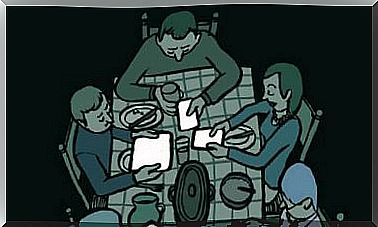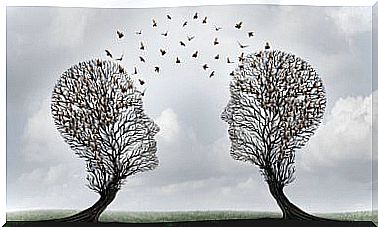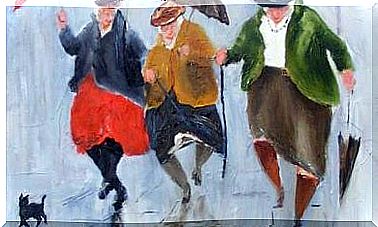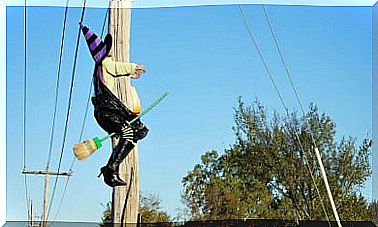The Dunning U0026 Kruger Effect: Fictitious Inferiority And Superiority

The Dunning-Kruger effect is a distortion of thought that could be synthesized as follows: dumb people think they are smarter than they are and smart people think they are dumber. Or perhaps it would be more accurate to say: ignorant people are sure they know a lot and those who know a lot feel ignorant.
This curious effect was discovered by David Dunning and Justin Kruger, two North American researchers from Cornell University. The former was a professor of psychology and one day he came across a piece of news that puzzled him. It was the case of a robbery committed by a 44-year-old man named McArthur Wheeler. The news said that he had robbed two banks, without a mask and in broad daylight. He was captured in just a couple of hours.
What caught Dunning’s attention was the thief’s explanation of his theft method. He indicated that he had not used a mask, but that he had applied lemon juice to his face. He hoped this would make him invisible to security cameras.
Why did he believe that nonsense? Some friends of his had “taught” him the trick and he had verified it: he had applied lemon juice and then he had taken a picture himself. He could see that his face did not appear in it. Of course, the lemon itself had prevented him from seeing that it had not focused on his face, but on the ceiling. How can anyone be so stupid? David Dunning wondered.
The Dunning-Kruger experiment
After long musings about the thief’s behavior, Dunning asked himself a question that would serve as a hypothesis for further investigation: Could it be that an incompetent is not aware of his own incompetence, precisely because of that? The question seemed like a tongue twister, but it certainly made sense.

It was then that he proposed to his best disciple, young Justin Kruger, that they do a formal investigation on the matter. This is how they organized a group of volunteers to do an experiment. Each participant was asked how efficient they rated themselves in three areas: grammar, logical reasoning, and humor. Afterwards, a test was applied to assess their real competence in each of these areas.
The results of the experiment confirmed what Dunning and Kruger already suspected. Indeed, the subjects who had defined themselves as “very competent” in each area, obtained the lowest scores in the tests. And, on the contrary, those who had been underestimated initially, achieved the best results in the tests.
Nowadays it is very common to see people who speak with apparent authority, on subjects that they know very superficially. At the same time, the usual thing is that the true experts are not so categorical in their affirmations, since they are aware of how vast the knowledge is and how difficult it is to assert something with total certainty.
The Dunning-Kruger Effect analysis
The organizers of this study not only noted that this cognitive bias existed, but also realized that the most incompetent people tended to underestimate the most competent. Therefore, they were much more confident and had a much greater sense of self-sufficiency, despite their ignorance. Or, perhaps, precisely because of her.

After conducting the experiment, the researchers came to the four conclusions that make up the Dunning-Kruger effect:
- People are unable to recognize their own incompetence.
- They tend not to be able to recognize the competence of other people.
- They are not able to become aware of how incompetent they are in a certain area.
- If they are trained to increase their competence, they will be able to recognize and accept their previous incompetence.
Once the distortion effect in these people had been established, the question of why this phenomenon occurred still had to be answered. Dunning and Kruger established that cognitive bias occurred because the skills necessary to do something well are the same as those required to evaluate performance. In other words: how can you tell that something is wrong, if you don’t even know how to do it right?
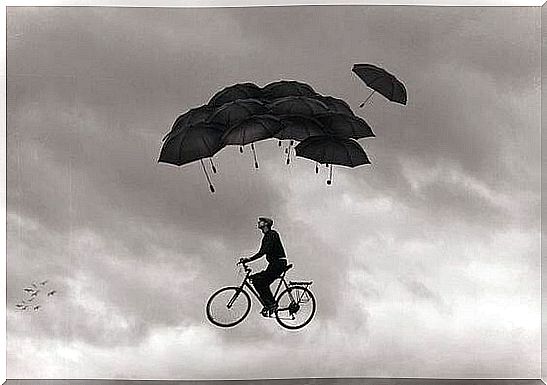
High performers also exhibited cognitive bias. In this case, the researchers established that what was produced was an error of perception known as “false consensus.” This error is that people tend to overestimate the degree of agreement with others.
Surely you have ever lived the scene in which two people get into an argument and finally to resolve it they decide to go to a third person outside the dispute, whom both parties consider neutral a priori, to settle it. Here, the false consensus would act when the two parties are convinced that the impartial observer is going to think like them.
Something similar happens with people who have a high performance in an activity, for them it is so easy to do it that they see no reason to suspect that most people cannot do it as well as they.
